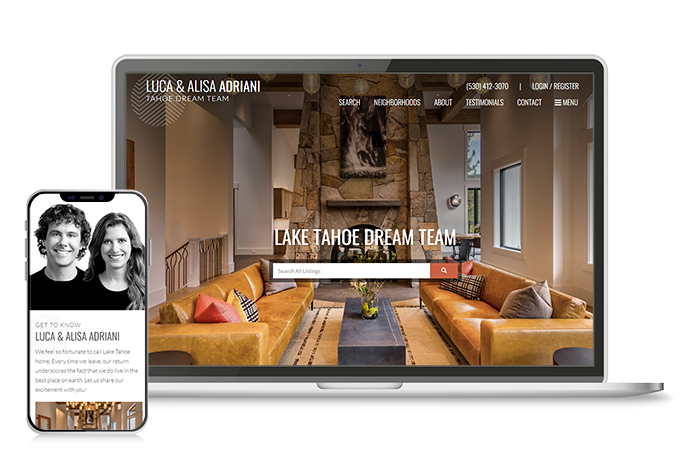 It would be putting it lightly to say that Google’s recent update about mobile-friendly sites has left many website-owners bewildered and frightened.
It would be putting it lightly to say that Google’s recent update about mobile-friendly sites has left many website-owners bewildered and frightened.
Maybe you set up a site as recently as a couple years back, and it was pretty cutting-edge and snazzy at the time. Now, you’re being told that you’ll be shut out by Google – a company that’s practically synonymous with the term “search engine” and an industry giant that boasts over 2/3rds of the search engine market share? Why can’t they pick on someone their own size?
Before you decide to throw in the towel, and go back to advertising on matchbooks, consider two things:
a) Google is simply doing its job, which is directing web users to helpful sites. As mobile device use has commanded the majority of web traffic since January 2014, Google is just trying to accommodate its users by directing mobile users to sites that work well with their devices. If you’ve ever viewed a non-mobile-friendly site on a smartphone screen, you know what a royal pain this can be: pinching, zooming, scrolling – and even then, you need a finger the size of a tic tac to tap the buttons. Google’s continuing success can be attributed to how it has adapted to changes in market trends and the ways that we interact with technology; if they didn’t, competitors willing to do so would soon leave them in the dust.
b) You might have absolutely no reason to worry, at all (for a while, anyways). Many of our sites are already mobile-optimized, in that they automatically direct users on handheld devices to a mobile-friendly version of the original site. These scaled-down versions of real estate sites offer much of the same content and IDX search functionality as their desktop counterparts, albeit with a simplified navigation menu and larger buttons that are easy to navigate with just your thumbs. As such, these sites are in full compliance with Google’s current Mobile Optimization Guidelines.
Of course, if your real estate site is not mobile-friendly (and you can easily find out by clicking this link and entering the address of your website), then it’s probably the perfect time to give your site the makeover it deserves with one of our eye-pleasing responsive site designs. For those of you who are unfamiliar with the term, “responsive” denotes an approach to site design in which the site’s layout is programmed to automatically adapt to any screen size, from smartphones to 34” ultrawide desktop monitors, and everything in between. This differs from our aforementioned mobile-optimized sites in that a single version of the site appears on all devices, rather than maintaining two versions of the same site for desktop and mobile viewers. While Google doesn’t require all mobile-friendly sites to utilize responsive design, they’ve indicated a growing preference for it, and there are no shortage of advantages to making this switch:
Our Top Eight List of Reasons to Go Responsive
- As mentioned previously, Google has made no secret that they like responsive design, a lot. Google has indicated a growing preference for responsive web design.
- The adaptability of responsive sites makes for a very user-friendly experience on any screen size. We invite you to try our semi-custom San Francisco responsive design or Seattle responsive design on any computer or internet-enabled device within reach, and we’re confident that you’ll find these real estate website designs exceedingly easy to navigate and browse.
- A more user-friendly browsing experience can significantly decrease a site’s bounce rate.
- Expand your audience to mobile/tablet users who may have previously avoided your older, non-responsive site.
- Making changes to a single responsive site is often much less time-consuming than applying the same changes to separate desktop and mobile sites.
- Today’s popular social and blogging channels are sure to bring in more mobile visitors; a responsively designed-site will help to keep them engaged, and keep your site’s bounce rate low.
- More and more potential clients are surfing the web on mobile devices than desktop computers. A joint study from Google and The National Association of Realtors® found 89% of new home shoppers use a mobile search engine at the start and throughout their home buying research; if you’re not visible to nearly a third of prospective leads, count on them going to your competitors.
- Stay competitive. Get a jump on your competition and position your site to be favored not only by Google, but the rapidly-growing number of online mobile users.
So whether you’ve put off a new mobile-friendly site redesign for far too long, or you just want to upgrade to a responsively-designed site for some of the reasons mentioned above, let us know! We’ll be happy to help you develop a responsive real estate website that balances functionality with ease of use, and promoting your brand identity.
 Let’s get started.
Let’s get started.
The time is now to make the most important change in your online marketing and we would love to help. For over 25 years IDXCentral.com has been specializing in real estate website design, IDX sales and integration. Learn more about our real estate website services or contact us now.

